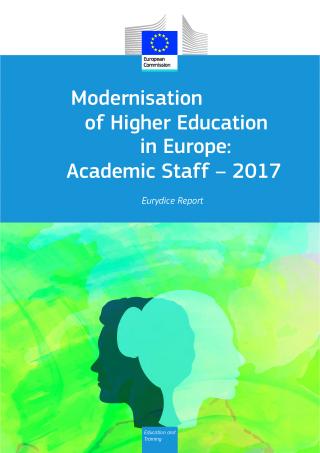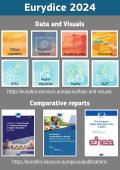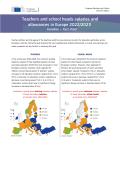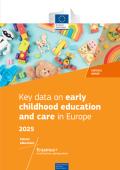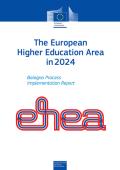Modernisation of Higher Education in Europe: Academic Staff – 2017
Full version BG BS CNR DE EN ES FR HR IT LV PL PT RO SK SR
Highlights BS CNR CS DE EL EN ES FI FR HR IT LT LV MT NL PL PT RO SL SR SV TR
Eurydice Brief BG CNR CS DE EN ES FRITLV MT PT RO SRTR
European Commission Press Release
The higher education sector has experienced profound changes in recent years. Student numbers have continued to increase, while the sector has diversified and experienced significant structural changes, such as new funding arrangements, and new quality assurance systems. The challenges for academic staff have also been growing. Staffs are responsible for teaching ever greater numbers of students, undertaking research, and responding to growing societal needs, while academic jobs become more competitive, and job security more tenuous.
Modernisation of Higher Education in Europe: Academic Staff – 2017 explores the current realities for academic staff within this changing higher education landscape. The report focuses on the qualification requirements for academic staff, the recruitment process, employment and working conditions in academia, the impact of external quality assurance, and top level strategies for internationalisation. It also includes national diagrams showing key characteristics of academic staff categories.
The report is based mainly on qualitative data gathered by the Eurydice Network, covering higher education systems in 35 countries. The data collection focused on academic higher education staff who are primarily responsible for teaching and/or research. In addition, quantitative data from Eurostat and the European Education Tertiary Register (ETER) are also used, as well as information gathered from surveys developed for this report to academic staff Trade Unions and Quality Assurance agencies.

